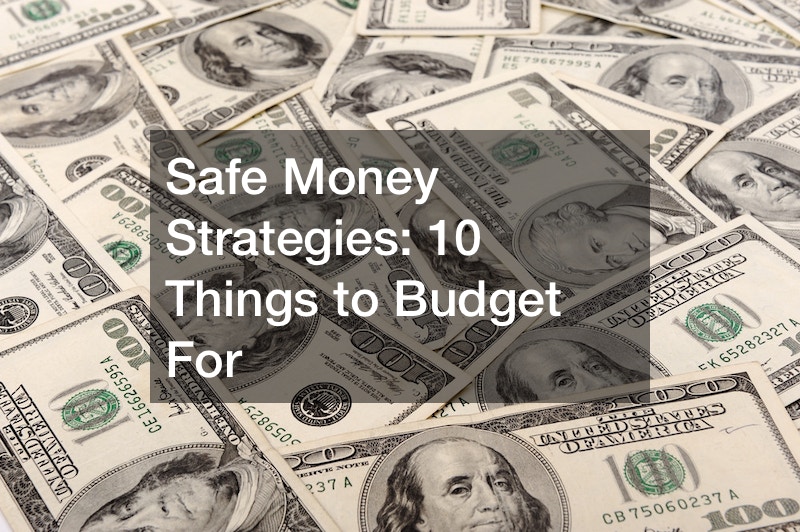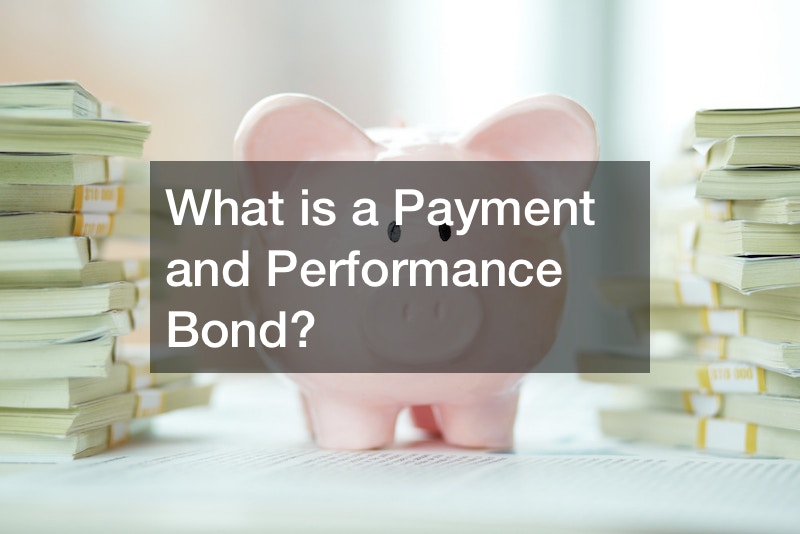
It’s not always easy to anticipate emergencies, but you can ensure you have the funds you need when you encounter unexpected expenses. Setting aside money for a rainy day can help you to stay on top of your finances, even when things go wrong. Developing safe money strategies and budgeting for extra expenses can help you avoid financial distress.
1. Higher Mortgage Payments

You may be comfortable with your current mortgage payment, but that payment won’t necessarily stay at the same rate forever. Several factors can cause a monthly mortgage payment to rise. For example, if you have an adjustable-rate mortgage, your interest rates could change, leading to higher payments.
It’s also possible that your mortgage provider could tack on extra service fees or that your payments will go up when you start paying the principal on your loan. Instead of letting these expenses catch you off guard, you should put aside extra money each month so that you’ll be prepared if your rates go up.
If your mortgage payment comes out of your bank account automatically, it’s smart to check your account to see what you’ve paid. You’ll want to adjust your budget if your payment starts to rise. You may even want to look into refinancing your home so that you can bring your payment down. Your mortgage is an ongoing expense, and employing safe money strategies will help you to cover this expense over time.
2. Invest In Home Insurance
Your home insurance policy offers valuable protection, so it’s best not to skimp on insurance coverage. The money you put towards your monthly insurance payments isn’t going to waste. Having insurance could help you avoid financial emergencies in the future.
One example of this is liability coverage. If someone is injured on your property, your homeowner’s insurance policy could pay for you to hire personal injury lawyers. You can even increase the amount of coverage your policy provides by investing in a personal umbrella policy.
In addition to looking at optional coverage, you should pay attention to coverage limits on your policy. Don’t assume that you won’t need to use your policy. Instead, think about the level of coverage you’d need if something went wrong. Make sure your policy gives you ample protection.
When it comes to safe money strategies, insurance plays a critical role. Homeowner’s insurance can protect you if your home is damaged in a natural disaster or your valuables are stolen. Make sure you have insurance coverage that you can truly rely on.
3. Home Ownership

If you’re currently renting, buying a home is a goal you’ll want to work towards. While a home is a big purchase, it’s also one of the best investments you’ll ever make. You’re likely already spending money on rent. If you were to put that money towards a mortgage instead, you’d be making an investment that will benefit you for the rest of your life.
There are numerous options for home loans, including options that allow you to make a smaller down payment. While these can be great options for many buyers, you should remember that you’ll have a smaller mortgage payment if you put more money down. Crunch the numbers and see if it makes sense to save for longer.
When you’re budgeting for a down payment, you should also consider some of the expenses associated with home ownership. Once you buy a home, you’ll be responsible for maintaining the property. Instead of putting all your savings towards your new home, you should set aside money for home maintenance and repairs as well.
Some of the best safe money strategies are about working towards goals that will benefit you in the long term. Buying your first home can be long and difficult, but it’s worth the effort. You may even find a home you’ll want to live in for the rest of your life!
4. Cosmetic Procedures
Even if you don’t plan on having plastic surgery done in the future, you may want to budget for future cosmetic procedures. Today, many procedures are available, including non-invasive ones that don’t require surgery. Dental procedures and skin treatments can help you feel like the best version of yourself.
Your smile can greatly impact your confidence levels. Cosmetic dental treatments can enhance your teeth, like teeth whitening, veneers, and dental implants. You can even explore options like clear braces and dental aligners if you have crooked teeth.
Some procedures can address visible signs of aging. Microdermabrasion can exfoliate dead skin and reveal healthy skin underneath. Laser treatments can remove stretch marks, age spots, and other marks impacting your appearance and confidence levels.
These procedures aren’t for everyone, but when exploring safe money strategies, you shouldn’t just focus on practical matters. A growing number of people are showing interest in cosmetic procedures. Some treatments could even make it easier for you to find employment opportunities!
5. Auto Repairs

If you notice a problem with your vehicle, like squishy brakes or a strange sound coming from your engine, it’s best to address the issue as soon as possible. Driving can be dangerous when there’s something wrong with your car. Being vigilant about fixing problems could also help you avoid more costly repairs.
Monitor your vehicle and keep an eye out for problems. If you notice an issue or the check engine light goes on, take the vehicle to an auto repair shop as soon as possible. While repairs can be an extra expense, you should be able to cover these costs if you include potential repairs in your budget.
No vehicle will last forever, but keeping up with maintenance and repairs can extend your car’s lifespan. Emergency car repairs can be a huge expense. If you budget for repair work and take care of problems sooner rather than later, you’ll likely spend less on your car.
6. Healthcare
Even with health insurance, medical expenses can majorly drain your finances. For example, if you get sick and have to take time off work, you could quickly burn through your paid sick leave. Some types of medical care, like emergency dental services, may not be covered by your insurance.
Your health is valuable, so you should be prepared to address health issues as soon as they occur. Whether you’ve noticed concerning symptoms or are dealing with a toothache, you should immediately see a healthcare professional. When there’s room in your budget to cover healthcare expenses, going to the doctor won’t feel like a big deal.
Safe money strategies should also include practices that will keep you healthy. Instead of scrimping on groceries, expand your food budget so you can afford healthier dishes. Consider a gym membership so that you can get regular exercise. Budgeting for your health can improve your finances and your quality of life.
7. Home Renovations
Your home is a significant investment, and the value of that investment will grow if you update your home. Not only should your budget include funds for basic maintenance and repairs, but you should also put aside money for renovations. Whether you finish your basement or remodel your bathroom, the right improvements can greatly increase your home’s value.
Remodeling your home can help attract buyers if you plan to sell in the future. The right updates can also improve your home’s functionality. That’s why many people improve heavily-used rooms, like bathrooms and kitchens. When a home needs extra space, renovations to basements and attics can add extra square footage.
If you’re not sure how much you need to save, reach out to local kitchen remodeling services so that you can get an estimate. Even if you don’t want to splurge on a full remodel, there are many ways to refresh your home. Refinishing your cabinets, installing new flooring, or repainting rooms could have a big impact.
Saving for renovation will give you access to other safe money strategies. For example, if you regularly update and improve your home, you may be able to get a home equity loan in the future. Make sure you’re setting aside the money you can use to increase your home’s worth.
8. Preventative Maintenance

It’s wise to budget for future repairs, but you should also take steps to prevent that damage in the first place. Preventative home maintenance is easy to budget for and could lead to huge savings in the future. Some types of maintenance, like cleaning your gutters or inspecting your roof, won’t cost you anything but time.
Paying for preventative maintenance can also be a worthwhile investment. Asphalt paving or seal coating can protect your driveway from damage, allowing you to avoid costly replacements. Sealing cracks and improving your home’s insulation could keep out pests and lower your energy bills!
Don’t be afraid to get rid of a roof that’s starting to rot, and don’t hesitate to replace your roof if it’s showing signs of age. Preventative maintenance is all about addressing issues before catastrophe strikes. You don’t need to wait for a major issue to take action. Dealing with problems early can save you a lot of stress.
When evaluating safe money strategies, it can be helpful to consider what you can do to avoid future problems. Sometimes, spending extra money now could help you save in the future. Create a preventative maintenance checklist to give your home the care it needs.
9. Professional Services
Doing things yourself isn’t always the best option. In many cases, paying to hire professionals is the financially savvy choice. Professionals have experience and expertise that they can apply to any job.
If you’re purchasing property, consult with professionals like real estate attorneys and ask them to look over the contract. When dealing with a serious plumbing problem, it’s best to call a plumber for help. Paying for professional assistance now could help you avoid costly problems.
The same strategy should apply to home improvements. Instead of painting your walls, consider hiring professional painting companies. If you’re interested in making complex renovations to your home, your best bet is to work with contractors that know what they’re doing. You can make small updates on your own, but when it comes to big projects, you should get help from experts.
Whether you need to hire an electrician or want to consult with an attorney, there’s a good chance you’ll need assistance from professionals in the future. Safe money strategies aren’t about cutting costs whenever possible. Make sure there’s room in your budget to get assistance from professionals when you need it.
10. Don’t Forget to Invest
It’s smart to set aside money for repairs, renovations, and emergencies, but you shouldn’t keep all your money in a savings account. Investing your money can help you grow your net worth. If you make smart investments, you could turn a small sum into a large pool of funds.
There’s always some risk when investing, so you should be cautious about how much you invest. It’s also a good idea to have a diverse investment portfolio. For example, you could put money into stocks and real estate. This strategy is an effective way to increase your chance of investment success.
You should also consider tax efficiency, especially if you’re investing money you plan on putting toward retirement. Consulting with a financial advisor can help reduce the impact taxes have on your investment. An advisor may also point you toward smart investments that will pay off for you.
Regular investing and reinvesting are crucial to all safe money strategies. Ideally, you should have a sizeable investment portfolio and an emergency fund that you can access anytime. You’ll have some money you can use when you need it, and you’ll be able to put funds towards your future retirement.
Building a budget can feel overwhelming, especially when you think about everything you want to save for. While you may have many expenses, you can prepare yourself for financial dilemmas by using your money wisely. Work to save and invest in setting yourself up for future success.



